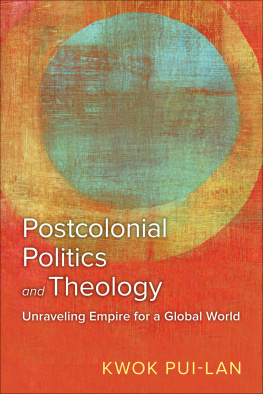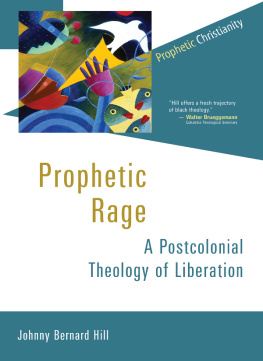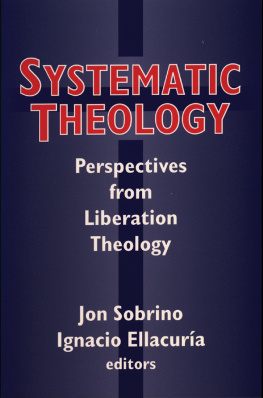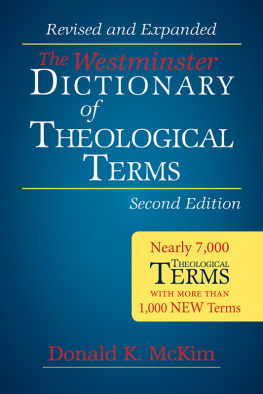
Founded in 1970, Orbis Books endeavors to publish works that enlighten the mind, nourish the spirit, and challenge the conscience. The publishing arm of the Maryknoll Fathers and Brothers, Orbis seeks to explore the global dimensions of the Christian faith and mission, to invite dialogue with diverse cultures and religious traditions, and to serve the cause of reconciliation and peace. The books published reflect the views of their authors and do not represent the official position of the Maryknoll Society. To learn more about Maryknoll and Orbis Books, please visit our website at www.maryknollsociety.org.
Copyright 2019 by Agnes M. Brazal
Published by Orbis Books, Box 302, Maryknoll, NY 10545-0302.
All rights reserved.
No part of this publication may be reproduced or transmitted in any form or by any means, electronic or mechanical, including photocopying, recording, or any information storage or retrieval system, without prior permission in writing from the publisher.
Queries regarding rights and permissions should be addressed to: Orbis Books, P.O. Box 302, Maryknoll, NY 10545-0302.
Manufactured in the United States of America.
Library of Congress Cataloging-in-Publication Data
Names: Brazal, Agnes M., author.
Title: A theology of Southeast Asia : liberation-postcolonial ethics in the
Phillippines / Agnes M. Brazal.
Description: Maryknoll : Orbis Books, 2019. | Includes bibliographical
references and index.
Identifiers: LCCN 2018037253 (print) | LCCN 2018047069 (ebook) |
ISBN 9781608337583 (ebook) | ISBN 9781626982925 (pbk.)
Subjects: LCSH: Christian ethicsCatholic authors. | Christian
ethicsPhilippines. | Postcolonial theologyPhilippines. | Liberation
theologyPhilippines.
Classification: LCC BJ1249 (ebook) | LCC BJ1249 .B623 2019 (print) |
DDC 241.09599dc23
LC record available at https://lccn.loc.gov/2018037253
Series Foreword
Duffy Lectures in
Global Christianity
Catherine Cornille
Never, in the history of Christianity, has Christian faith been expressed in so many forms. Although long a global religion, it is only in the course of the twentieth century that the church came to valorize and celebrate the particularity of the different cultures and that local churches were creatively encouraged to engage and appropriate indigenous symbols, categories, and modes of celebration. A milestone in the Catholic Church was the 1975 apostolic exhortation Evangelii Nuntiandi , which states:
The individual Churches, intimately built up not only of people but also of aspirations, of riches and limitations, of ways of praying, of loving, of looking at life and the world, which distinguish this or that human gathering, have the task of assimilating the essence of the Gospel message and of transposing it, without the slightest betrayal of its essential truth, into the language that these particular people understand, then of proclaiming it in this language. (no. 63)
The term language is here understood in the broad anthropological and cultural sense to touch on not only translation of the gospel message, but also liturgical expression... catechesis, theological formulation, secondary ecclesial structures, and ministries (no. 63). It thus involves a thorough rethinking of the gospel in terms and structures resonant with particular cultures, and a focus on the social, political, and spiritual questions and challenges alive in those cultures.
The notions of inculturation and contextualization have since become firmly ingrained in Christian theological thinking. One has come to speak of Latino/a theology, African theology, Indian theology, and so forth, each giving way to even more local or focused theologies, such as Igbo theology, Mestizo theology, or Dalit theology. This raises questions about the relationship among all of these forms of theologizing and about the relationship between the individual and the universal church.
The goal of inculturation and indigenous theologies in the first place is, of course, to better serve the local churches and to respond to their particular needs and questions. But many of the cultural riches mined in the process of inculturation may also become a source of inspiration for other churches or for what is called the universal church. Evangelii Nuntiandi clearly warns, Let us be very careful not to conceive of the universal Church as the sum, or, if one can say so, the more or less anomalous federation of essentially different churches (no. 62). It implores individual churches to remain in communion with the universal church. But it does not yet fully appreciate the opportunity for the universal church to learn from local churches. There is still an often unspoken assumption that theological models and currents that have developed in Europe remain normative and that local theologies are but various forms of expression of the same theological insights. However, all theology (including Western theology) entails both universal and culturally particular dimensions, and each attempt to express the gospel within a particular culture may bring out new dimensions of its message relevant for all believers. As the center of gravity of the church is shifting, and as the distinction between local and universal or global is becoming more blurred, it is becoming more than ever important and possible for different theological traditions to engage and enrich one another.
This is why the department of theology at Boston College established the Duffy Chair in Global Christianity. Each year a theologian from a different continent is invited to deliver a series of lectures dealing with the theological challenges and insights arising from his or her particular context. These challenges and insights may focus on ethical questions, theological developments, biblical hermeneutics, spiritual and ritual practices, and so on. The goal is not only to inform faculty and students of the ways in which theology is done in particular parts of the world but also to raise new questions and offer new insights that might enrich local theological reflection in North America and beyond. The department is very pleased to partner with Orbis Books in order to make the fruit of this theological reflection more broadly available.
The Duffy Chair in Global Christianity was named after Father Stephen J. Duffy (19312007), who taught systematic theology at Loyola University in New Orleans from 1971 to 2007, and who was himself deeply engaged with questions of religious and cultural diversity and eager to address these questions in a creative and constructive way. What he wrote about the relationship of Christianity to other religions applies all the more to its relationship to different cultures:
To the extent that Christianity opens itself to other traditions, it will become different. Not that it will be less Christian or cease to be Christian altogether. It will simply be taking one more step toward catholicity, the fullness it claims to anticipate in the coming reign of God.
Acknowledgments
This book is a fruit of the lectures I delivered at Boston College in 2017 as part of the Duffy Lectures in Global Christianity series. With gratitude to Catherine Cornille, then-chair of the theology department, who first extended the invitation to me to give these lectures, to Richard Gaillardetz for organizing the lectures after succeeding Cornille as department chair in 2016, and to Lisa Sowle Cahill for teaching a course around my talks and facilitating a discussion with her students. I am also indebted to Jeffrey Fagen, dean of St. Johns College of Liberal Arts and Sciences in New York, for permitting me to do the lecture series while I was their Visiting Chair of Humanities in 2017; this allowed me to spread out my lectures at Boston College over a period of three months. I also extend my thanks to my Catholic Theological Ethics in the World Church family in Boston, who welcomed me while I was thereespecially James Keenan, SJ, Andrea Vicini, SJ, Kristin Heyer, Maria Teresa Dvila, and Toni Ross.








 Founded in 1970, Orbis Books endeavors to publish works that enlighten the mind, nourish the spirit, and challenge the conscience. The publishing arm of the Maryknoll Fathers and Brothers, Orbis seeks to explore the global dimensions of the Christian faith and mission, to invite dialogue with diverse cultures and religious traditions, and to serve the cause of reconciliation and peace. The books published reflect the views of their authors and do not represent the official position of the Maryknoll Society. To learn more about Maryknoll and Orbis Books, please visit our website at www.maryknollsociety.org.
Founded in 1970, Orbis Books endeavors to publish works that enlighten the mind, nourish the spirit, and challenge the conscience. The publishing arm of the Maryknoll Fathers and Brothers, Orbis seeks to explore the global dimensions of the Christian faith and mission, to invite dialogue with diverse cultures and religious traditions, and to serve the cause of reconciliation and peace. The books published reflect the views of their authors and do not represent the official position of the Maryknoll Society. To learn more about Maryknoll and Orbis Books, please visit our website at www.maryknollsociety.org.